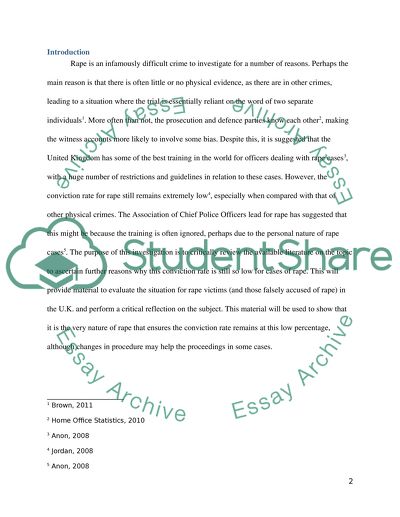Cite this document
(“Why is the conviction rate for rape so low in the United Kingdom Dissertation”, n.d.)
Retrieved from https://studentshare.org/law/1393892-why-is-the-conviction-rate-for-rape-so-low-in-the
Retrieved from https://studentshare.org/law/1393892-why-is-the-conviction-rate-for-rape-so-low-in-the
(Why Is the Conviction Rate for Rape so Low in the United Kingdom Dissertation)
https://studentshare.org/law/1393892-why-is-the-conviction-rate-for-rape-so-low-in-the.
https://studentshare.org/law/1393892-why-is-the-conviction-rate-for-rape-so-low-in-the.
“Why Is the Conviction Rate for Rape so Low in the United Kingdom Dissertation”, n.d. https://studentshare.org/law/1393892-why-is-the-conviction-rate-for-rape-so-low-in-the.


